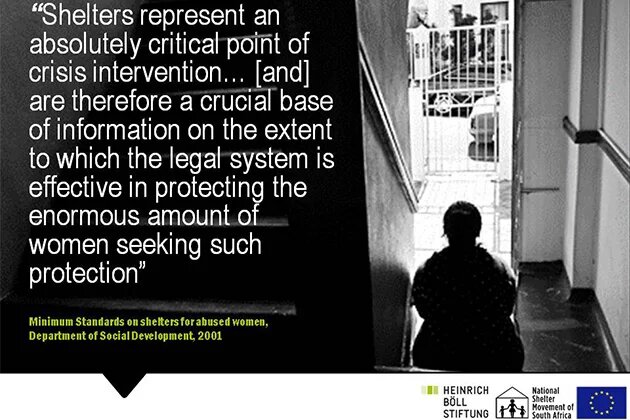
Shelters for abused women play a critical role in providing protection, care and psychosocial support to those affected by Gender-Based Violence. The Domestic Violence Act (1998) enshrines the state’s obligation to provide survivors of abuse with shelters, but whilst the act is a crucial piece of legislation, the provision of sheltering services has not been without its challenges. HBS Project Manager Claudia Lopes recently spoke to SAfm about a new project which aims to support state accountability for adequate and effective provision of domestic violence survivor support programmes, specifically those associated with the provision of shelter for abused women.
Violence against women is widely recognised as a significant problem in South Africa. Shelters for abused women play a critical role in providing protection, care and psychosocial support to those affected by Gender-Based Violence, a phenomenon that is a human rights abuse. The Domestic Violence Act (1998) enshrines the state’s obligation to provide survivors of abuse with shelters, and codifies the state’s legal, criminal, health and social welfare responsibilities to survivors. While the DVA is a crucial piece of legislation, the provision of sheltering services has not been without its challenges.
In order to support state accountability for adequate and effective provision of domestic violence survivor support programmes, specifically those associated with the provision of shelter for abused women, the Heinrich Böll Foundation and the National Shelter Movement of South Africa have embarked on a 3-year EU-funded project titled Enhancing State Responsiveness to Gender-Based Violence: Paying the True Costs.
HBS Project Manager Claudia Lopes recently spoke to SAfm’s Talkshop host, Naledi Moleo, about what prompted the development of the project, and the manner in which the organistions intend to achieve the project objective. To listen to the recording of this interview, please click on the link below.
Listen to the Interviews Below: